Search Results
Showing results 41 to 60 of 350
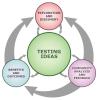
Heating and Cooling of the Earth's Surface
Source Institutions
Learners conduct an experiment to determine the rate at which two materials, sand and water, heat up and cool down.
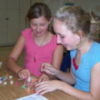
Gumdrop Dome
Source Institutions
In this activity (located on pages 23-24 of the PDF), learners are introduced to structural engineering and encouraged to practice goal-oriented building.
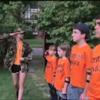
Exercise and Memory
Source Institutions
This activity (page 1 of the PDF under SciGirls Activity: Exercise and Memory) is a full inquiry investigation into the effects of exercise on short term memory.

Do Your Own Dig
Source Institutions
In this outdoor archaeology activity, learners use mathematical skills and scientific inquiry to generate and process information from their own excavation site.
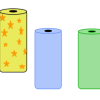
Number Sense and Computation: Soak It Up
Source Institutions
In this math lesson, learners compare products to determine the best product.

How Quick Are Your Responses?
Source Institutions
In this activity (on page 134 of the PDF), learners explore reaction time.
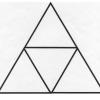
Geometry: Let's Face It
Source Institutions
In this math lesson, learners identify, describe, and construct the five regular polyhedra.
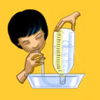
Lung Capacity
Source Institutions
This is an activity about lung capacity. Learners will measure their own lung capacity using a homemade spirometer.
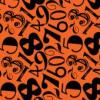
Guess My Number
Source Institutions
In this math activity, learners play a game similar to 20 Questions, in which learners must identify a secret number drawn from a bag.
Growing Plants: Track Their Growth
Source Institutions
In this activity, learners will be working with predictions with a time frame of one week, or longer. Start by planting seedlings.

Make a Dinosaur Model
Source Institutions
In this activity, learners explore dinosaur skeletons, anatomy, and locomotion. Learners compare and contrast dinosaur skeletons and drawings.

What Shape Is It?
Source Institutions
In this activity, learners determine the shape of an unseen object by bouncing a ball off the object.
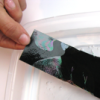
Exploring Materials: Thin Films
Source Institutions
In this activity, learners create a colorful bookmark using a super thin layer of nail polish on water. Learners discover that a thin film creates iridescent, rainbow colors.
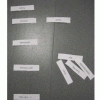
Life Size: Line 'em up!
Source Institutions
In this activity on page 1 of the PDF, learners compare the relative sizes of biological objects (like DNA and bacteria) that can't be seen by the naked eye.
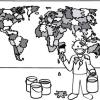
The Poor Cartographer: Graph Coloring
Source Institutions
In this activity, learners help a poor cartographer color in the countries on a map, making sure each country is colored a different color than any of its neighbors.
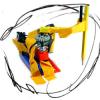
Pico Cricket Compass
Source Institutions
Learners can program a compass to draw a circle by itself using a Pico Cricket, some Legos, and lots of tape! Pico Cricket is required.
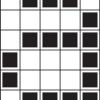
Color by Numbers: Image Representation
Source Institutions
Computers store drawings, photographs, and other pictures using only numbers. Through this activity, learners decode numbers to create pictures using the same process that computers use.
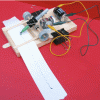
Paper Tape Motion Timer
Source Institutions
In this activity, learners build a recording timer made from simple materials (e.g., small dc motor, sharpie pen, craft sticks, adding machine paper tape, etc.).
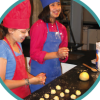
Cookie Surface Area
Source Institutions
This is an activity (on page 2 of the PDF under Surface Area Activity) about surface area to volume ratio.
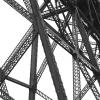
Breaking Beams
Learners investigate stress and strain by designing, building, and testing beams made from polymer clay.
